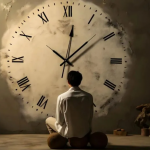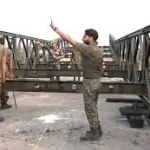INTOLERANCE
On an ordinary day as I travelled through the heart of Srinagar in a State Road Transport Corporation (SRTC) bus, I encountered something far from ordinary, something that perhaps reflects a larger issue within our society. The air was calm, the streets alive with the daily hum of life, and the bus slowly made its way through the city. Seated quietly, I observed the scenes of Kashmir rolling past the window, until a sudden burst of voices broke the rhythm.
The noise came from just a few seats behind me. Two middle-aged passengers, seated side by side on the left side of the bus, were engaged in a heated argument. The reason? Something as trivial as the position of a window. One wanted it open to let in the fresh spring air; the other wanted it shut, perhaps to avoid the dust or cold breeze. But what followed was not a polite discussion or a middle ground; it was an ego clash, loud voices, and stubborn attitudes. Eventually, the more aggressive individual won the argument, not through reason but through rudeness and domination.
This small moment seemingly insignificant to some echoed a profound societal truth: we have forgotten how to compromise. We are increasingly becoming a society that lacks patience, empathy, and the art of coexistence. No one was willing to give in. No one thought of finding a midway solution like half-opening the window or switching seats. It was a stark reminder of how intolerance has seeped into our everyday behavior.
In the broader scheme of things, a closed or open window may not matter. But the inability to settle a petty issue without escalating it to an argument is telling. It reflects our growing impatience and decreasing capacity for understanding others’ needs. We no longer listen to understandwe listen to respond or dominate.
This one incident mirrors countless similar ones happening in buses, markets, homes, and workplaces every day. Kashmir, a land of beauty, culture, and resilience, is unfortunately not immune to the global wave of rising intolerance and ego-driven interactions. From traffic snarls to neighborhood disputes, we seem to be in a constant state of agitation, ready to burst at the slightest inconvenience.
Why is it that we’ve become so intolerant? The reasons are manifold. Increasing stress, the pressure of modern life, social media addiction and even the polarization of opinions in society have all contributed to the decline of patience. We live in a world of instant gratification, fast food, fast internet, fast opinions, but we forget that human relationships and social harmony cannot be fast-tracked. They need time, effort, and above all, patience.
Furthermore, our educational systems rarely teach emotional intelligence or conflict resolution. While we focus on academic achievement, we ignore the moral and social values that help build a peaceful community. Compromise is not weakness; it is strength, one that requires a calm mind and an empathetic heart. The ability to say, “It’s okay, I’ll adjust,” is not a defeat, but a victory of humanity over ego.
The incident in the bus also raises questions about public etiquette. Shouldn’t public transport be a space where people understand each other’s needs and share space respectfully? The fact that none of the passengers intervened meaningfully, or that no one suggested a compromise, shows a collective disconnect. We’ve become passive observers of conflict, rather than peacemakers.
It’s time to reflect. A society that cannot settle a dispute over a bus window without conflict cannot expect to resolve larger issues of governance, economy, or development with maturity. Patience, tolerance, and compromise are not just virtues; they are the pillars of a civilized society. The need of the hour is to revive these forgotten values, to teach them to our children, and to practice them in our daily lives.
As I stepped off the bus and resumed my journey, the voices behind me still echoed in my ears, not just the argument, but what it represented. I carried with me a small but powerful lesson: sometimes, opening a window should not close the door of kindness.
Let us, as a community, reflect on our behaviors. Let us choose peace over pride and dialogue over dispute. Only then can we build a society where everyone has a place, even on a crowded bus with a shared window.
(Author can be reached at: [email protected])








